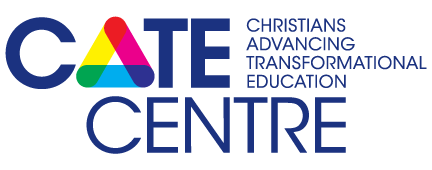In an earlier article, I argued that the teacher represents the school’s very essence. In fact, a school can only succeed according to the makeup of its faculty. “The excellence of an organization’s product cannot exceed the excellence of those responsible for producing that product… this means that the school will never be any better than its teachers and staff” (Frost, 2007). Thus, the characteristics and core values that define a quality teacher are those that define a quality school.
Gene Frost recalls an evaluation conducted by Wheaton Academy narrowing the essentials of the school’s core values to Excellence, Relationship, and Service. These three descriptors were taken directly from the school’s mission statement: “Wheaton Academy seeks to nurture growth through excellence, relationships, and service all to the glory of God.” When the school modified their teacher performance evaluation system so these three core values represented the central focus of the process, the school witnessed a direct correlation to the increase of their admissions – resulting in the school’s enrollment tripling over the subsequent fifteen years. Articulating, protecting, and ensuring that core values are known makes a quantifiable difference in the success of any school; and especially within Christian schools.
Authentic Christian educators share a number of core values, but perhaps chief among them is the sincere and humble recognition that God is the Teacher.
The fundamental thought underlying nearly everything that we would want to say about the Christian idea of education is that God is the teacher. It is He who establishes all truth; it is He who wills that men shall know the truth; He gives us curious and reflective minds to seek the truth and grasp it and use it; He even gives us the supreme privilege of helping Him in partnership both to teach and to learn. (Fuller, 1957)
Understanding and acknowledgment of God’s sovereignty, when it comes to both the role of the teacher’s teaching and the student’s learning are core values of Christian educators.
In Psalm 33:3 (NASB), David instructs his musicians to “Sing to Him a new song; play skillfully; and shout for joy.” When leaders reflect on the shared core values of what is most desired and needed for effective teachers in a Christian school, this charge to musicians serves as a great model. Consider the following:
- Sing to Him – Authentic Christian educators view their work, and their words and actions, as being directed toward God. One of the shared core values is that Christian schools are populated by individuals who see their work as a form of worship.
- A new song – Authentic Christian educators share the core value of being life-long learners; committed to meeting the unique and specific needs of their current students. They focus on leading and teaching within their present reality and context, rather than the historical one of their own school experience, and to the future needs of their current students. In other words, they adopt and implement best practices; developed to address the needs of students and the world they live in now – and in the future – recognizing that their needs are very different from students in the past. They have the ability to produce a new song.
- Play skillfully – Authentic Christian educators share the core value of being masters in their fields. They have a commanding knowledge of their subject area or discipline and are experts in pedagogy.
- And shout for joy! – An essential core value of the authentic Christian educator is the presence of joy and celebration in what they do. They know that students are affected so much more by how they teach than what they teach. A leader or teacher with a visible joy in their work and life draws students far more rapidly into their own joy for learning and maturing.
Another biblical model that identifies the shared ideals/beliefs of the authentically Christian educator comes from Paul in his instructions to Timothy to, “correct, rebuke, and encourage with great patience and careful instruction” (2 Timothy 4:2). Paul identifies three core pedagogical values for authentic Christian educators.
- First, authentic Christian educators understand that students learn through failure, therefore failures are utilized to correct and guide learning.
- Secondly, authentic Christian educators recognize their responsibility and involvement in student character development, therefore, at times, they need to rebuke their students; helping students to understand and recognize what behaviors are not acceptable. (Note that the biblical directive to “rebuke” does not equate to criticizing, condemning, or punishing. Rather, it refers to the prohibition of something. So to rebuke, meant to command that something stop).
- Thirdly, the authentic Christian educator recognizes the importance of daily, hourly, and even moment-by-moment student encouragement. This recognizes and celebrates even small movements in the growth and maturation of students and is a powerful tool in developing their self-motivation.
All of these steps (i.e. correct, rebuke, and encourage) are accomplished through a great deal of patience and care.
Authentic Christian educators share the core value of modeling what they desire to see developed within their students. “Teachers, like parents, are called upon to model the love of God, which they hope to encourage students to follow” (Pazmiño, 2008). Through their role-modeling, leaders and teachers communicate with their students every day, moment by moment, what really has value in life.
In the study of apologetics, theologians discuss the Axiological Argument, identifying the underlying moral values of this world. “The classroom is an axiological theater in which teachers cannot hide their moral selves. In the area of axiology, by their actions teachers constantly instruct groups of highly impressionable young people who assimilate and imitate their teacher’s value structures to a significant extent” (Knight, 2006).
Authentic Christian educators share the core value of being facilitators of change. The most effective leaders and teachers see their role as guides, rather than sources of information. Standing up in front of a class and verbally spewing content is easy – but it is not teaching. The task or function of the truly engaged, passionate, student-centered Christian teacher is nearly overwhelming – and yet incredibly exciting for those who recognize the power and influence that the ministry of teaching has on students and the world.
The calling we have to prepare, nurture, encourage, and inspire is noble, but daunting. Planning and executing meaningful lessons that address every learning style and level while aligning with state standards and incorporating technology provides a challenge all its own. Added to that, we must manage our classrooms with firmness and fairness, finding the balance between understanding student’s individual needs and circumstances while holding them responsible for achieving at their highest aptitude and operating with a positive attitude (Knight, 2006).
Why take on this daunting task? For the authentic Christian educator, it is the core value of living as a reflection of Jesus Christ; recognizing that the most effective means of evangelism and discipleship takes place between mentor and mentee, just as with Jesus and His disciples. “Not least among the ways students are drawn to Christ in Christian schools is the influence of Christian teachers. Their acumen, their love, their joy: these are all forms of Christian witness that must not be underestimated” (Reisen, 1989). Their witness is also an essential function of who they are and what they accomplish.
Finally, authentic Christian educators share the core value of serving students through the function of prayer. “Prayer is also one of the greatest ways a Christian teacher impacts his or her students and colleagues for Christ” (Parker, 2012). The purpose of prayer is continually to recognize our dependence on God; therefore, this core value takes us back to authentic Christian schools recognizing that God is the one true Teacher.
©Toby A. Travis, Ed.D. All Rights Reserved
Recommended Reading:
- Gene Frost, Learning from the Best, 2007
- Edmund Fuller, The Christian Idea of Education, 1957
- Jeff Astley, “The role of worship in Christian learning,” Religious Education 79, no. 2 (1984): 243-251
- Indria M. Raman, “Teaching for the future,” eLife 4, (2015): n. pag.
- Glenda Bissex, “On becoming teacher experts: What’s a teacher-researcher?” Language Arts 63, no. 5 (1986): 482-484
- Leslie Kern, Roberta Hawkins, Karen Falconer Al-Hindi, and Pamela Moss, “A collective biography of joy in academic practice,” Social & Cultural Geography 15, no. 7 (2014): 834-851
- Bruce W. Tuckman and Thomas L. Sexton, “The effect of teacher encouragement on student self-efficacy and motivation for self-regulated performance,” Journal of Social Behavior & Personality 6, no. 1 (1991): 137-146
- Robert W. Pazmiño, Foundational Issues in Christian Education: An Introduction in Evangelical Perspective, 2008
- George R. Knight, Philosophy and Education: An Introduction in Christian Perspective, 2006
- Michael G. Fullan, “Why Teachers Must Become Change Agents,” Educational Leadership 50, no. 6 (1993): 12-17
- Richard Riesen, Piety and Philosophy, 1989-1991
- Dalene Vicery Parker, Christian Teachers in Public Schools: 13 Essentials for the Classroom, 2012

